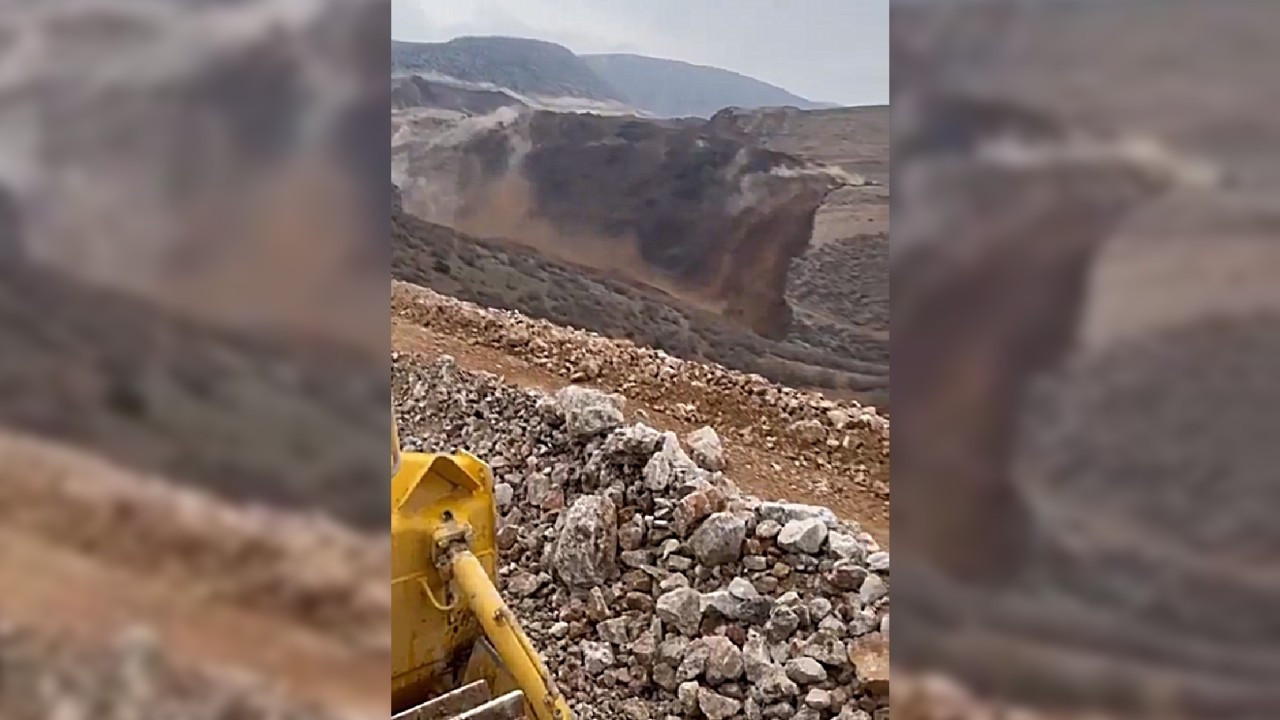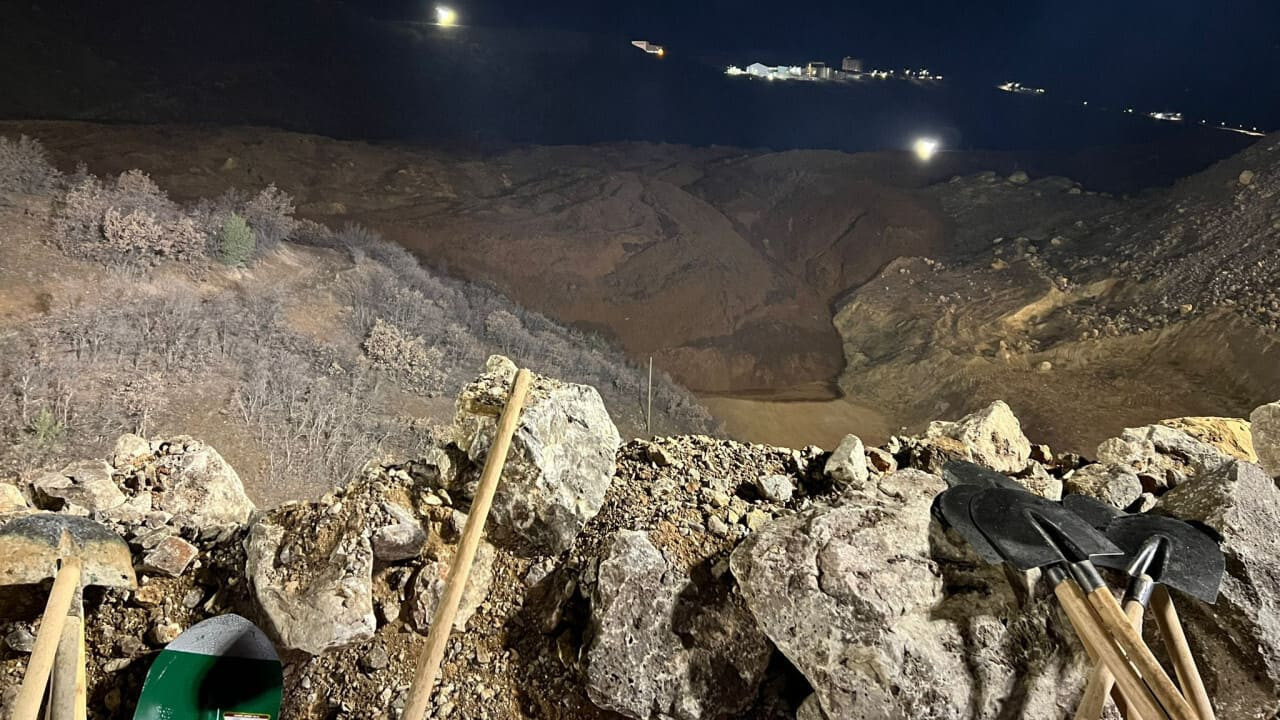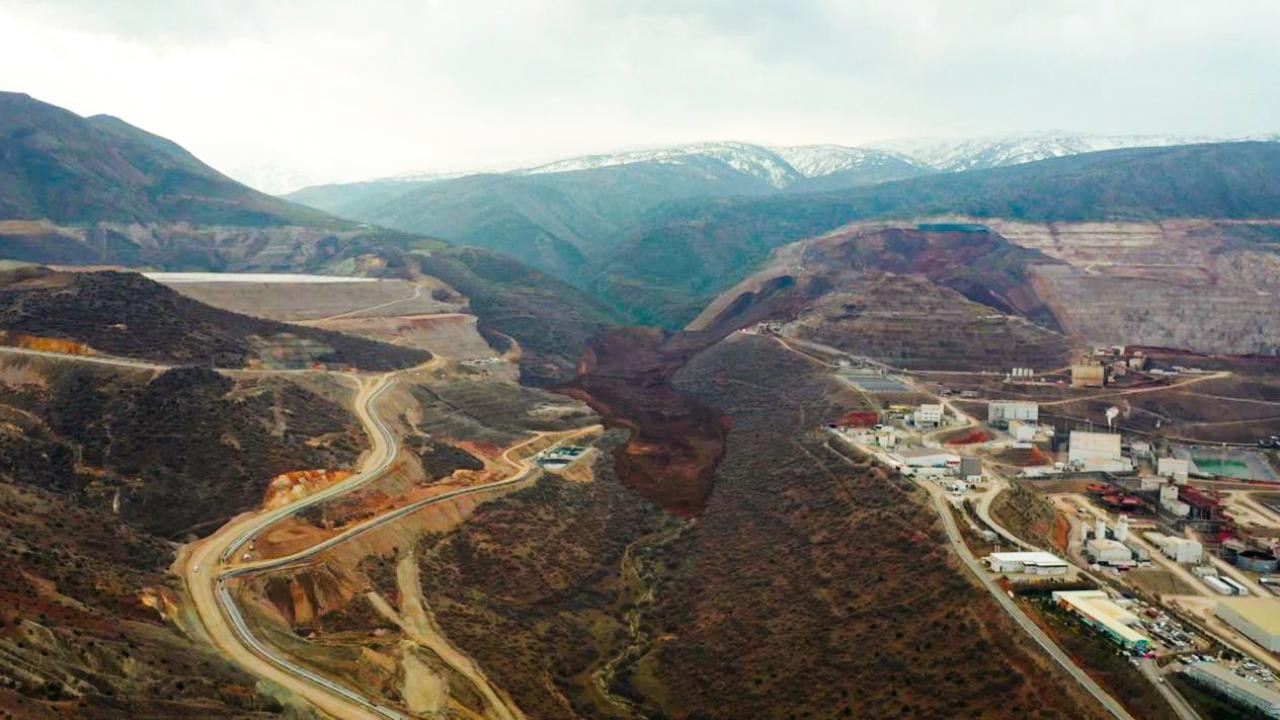Turkish court stops capacity expansion at gold mine after disaster
A Turkish court has issued a stay of execution on the capacity expansion approval of the Environment Ministry for the collapsed Çöpler Gold Mine in Turkey’s eastern Erzincan province. The mine collapsed on Feb. 13, trapping nine workers who have not yet been found, and leading to cyanide leakage to the environment. The mine has been out of use since then.
Duvar English
The Erzincan Administrative Court has ordered a stay of execution to the approval of the Environment, Urbanization and Climate Change Ministry for the Çöpler Gold Mine’s capacity expansion.
The move came after the mine collapsed on Feb. 13, trapping nine workers under thousands of tons of mass consisting of cyanide. Search operations for the workers are still on pause due to the ongoing risk of landslides.
After the disaster, the Union of Chambers of Turkish Engineers and Architects (TMMOB) filed a lawsuit against the ministry and Anagold Mining, which operates the collapsed mine, regarding the capacity expansion of the mine, ANKA News Agency reported on March 4.
The TMMOB had requested the cancellation of the expansion because “cyanide will be used in the project area; it will cause serious damage to the environment; acid mine drainage will destroy many minerals in the soil; there are pasture, forest and agricultural lands in the project area subject to the lawsuit; the project area is 250 meters from Çöpler and Sabırlı villages; the principle of participation in the environmental impact process was ignored during the project phase; the report is full of deficiencies and errors; and the local people were not informed.”
The ministry was heavily criticized for recently approving the capacity expansion plans called “Çöpler Complex Mine 2nd Capacity Increase and Flatation Plant Project.”
The court also ordered a stay of execution for the ministry’s decision not to require an Environmental Impact Assessment (ÇED) report for the “Open Pit Expansion Project.” ÇED is a process in which significant impacts of a particular project or development on the environment are determined.
The court also requested the investigation report and the photographs taken during the on-site investigations after the disaster, as well as the results of the analysis of the samples taken from underground and surface waters and soils.
The ministry on Feb. 17 announced that the mine's license had been revoked.
Experts have warned about cyanide and other heavy metal contamination in the environment due to the landslide disaster, especially the Euphrates River that neighbors the mine.

 Turkish court arrests two engineers in relation to gold mine disasterDomestic
Turkish court arrests two engineers in relation to gold mine disasterDomestic Worker in Turkey’s collapsed mine hospitalized from suspected cyanide poisoning Domestic
Worker in Turkey’s collapsed mine hospitalized from suspected cyanide poisoning Domestic Turkish Mining Authority removed active fault under collapsed Çöpler Gold Mine from map, CHP revealsDomestic
Turkish Mining Authority removed active fault under collapsed Çöpler Gold Mine from map, CHP revealsDomestic